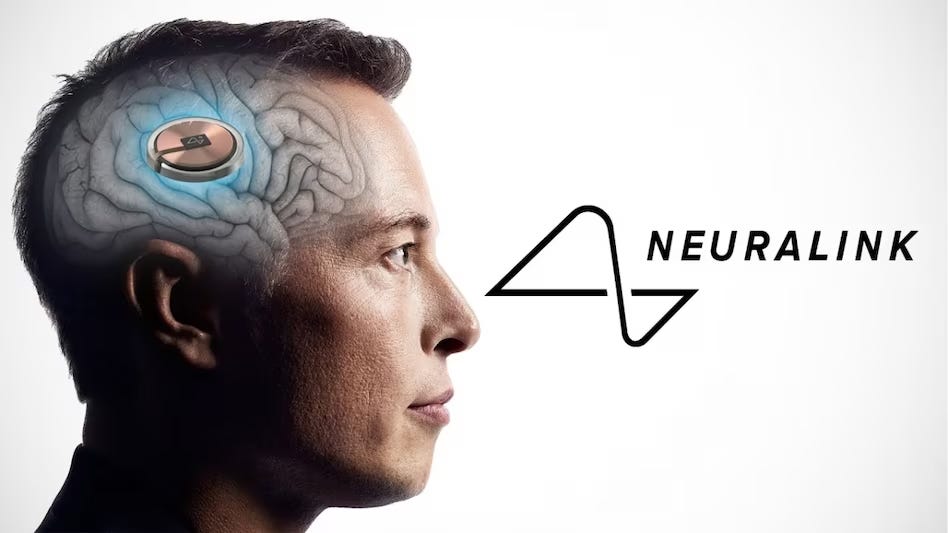TechGnostics, Idealists, and the Future of Humanity
A Metaphysical Examination of Silicon Valley Ideology
Ontology is the invisible underpinning upon which cultures, societies, and civilizations, effloresce, fade, and decompose. — The Idealism Option, The Elevator, 12.
What if I told you that the description of reality that we all share is a lie? I know, that sounds like some sensationalist, sci-fi hook. But the nature of reality proffered by science today is all based on a series of assumptions that were never empirically proven. Why is this relevant to a larger discussion of technology, artificial intelligence, Silicon Valley, and transhumanist ideologies?
The assertions that AI hype men and transhumanists are making are deeply metaphysical, and double down on these unfounded metaphysical assumptions. So confronting them requires a discussion of metaphysics. I apologize in advance. Seriously though, this is fun and interesting stuff.
The ultimate destination for these little missives and YouTube videos is to understand what it means to be human in this age of AI, and to really celebrate that, as flawed and limited as we are. What inspired me to talk and write about this is all the AI hype ("we've basically solved general intelligence!") and the strange ideologies driving technology innovation in Silicon Valley today: transhumanism, rationalism, and effective altruism, among others—ideologies that I have been calling techgnostic. (All of this is then going to become a book I will publish next year.)
I call the transhumanists, longtermists, and cosmists et al the techgnostics, because they hope to transcend this earthly realm with all its blood, sweat, dirt, and tears, and ascend into a realm of pure mind. For those who don’t know, the gnostics were a Christian religious sect in the 2nd to 4th centuries CE that sought mystical transcendence or salvation through “gnosis,” or esoteric, personal knowledge of God. They viewed the material world as an “abortion of matter” created by a malevolent demiurge, made solely of pain and suffering. In short, they sought to transcend the corporeal and ascend into heaven.
Before I continue, let me clarify that I love technology and think it can improve our lives immensely, including by augmenting our human faculties. I am not anti-technology by any means. I am merely criticizing techgnostic, techno-utopian ideologies.
Transhumanism, Longtermism, Cosmism, Etc.
Transhumanism is an ideology and a movement that seeks to make humans “more than human,” to transcend what it is to be human, including potentially merging with machines in various ways in order to become immortal and spread “human consciousness” throughout the cosmos. Transhumanists advocate the use of various technologies to achieve these ends (see below). Longtermism and cosmism are related ideologies that emphasize the moral imperative of becoming a new species as quickly as possible, colonizing space, and “spreading consciousness throughout the universe.” Many of these techgnostics (especially effective altruists and longtermists) think we should prioritize the wellbeing of “future humans” over that of humans alive today.

The technologies that will enable the creation of the transhuman include neural implants, mind uploading, nanotechnology, life extension / cryonics, cyborgization (artificial limbs, exoskeletons, 3D-printed body parts), genetic engineering, and, of course, artificial general intelligence (AGI). Some transhumanists think unfettered technological innovation will result in a techno-utopia; others worry that AGI in particular poses an existential threat to humanity. Transhumanists include Sam Altman (OpenAI), Ray Kurzweil (Google), Elon Musk (Tesla, SpaceX, Neuralink, X), and Peter Thiel (venture capitalist, JD Vance mentor, sometime Trump backer).
To summarize my concerns about transhumanism briefly (I will unpack these in later posts and videos):
It places too much emphasis on AGI, and completely misunderstands the nature of consciousness.
It is overly focused on the wellbeing of “future humans” instead of humans alive today.
It sees technology as the solution to very human challenges we face; treating AGI as some kind of messiah that will come and save us from ourselves.
It recommends an unhealthy alienation from nature, the body, and death.
It assumes that we will be superseded by machines, so that becoming part machine is the only means for survival (Elon Musk in particular believes this).
It attempts to achieve spiritual transcendence through technology and pure physicalism / materialism.
As you can see, getting to the point where I can talk about transhumanism and its related ideologies requires laying a multi-layered foundation, one that includes a discussion of worldviews like scientific materialism, as well as an exploration of profound and existential topics like human consciousness and contemporary society's strange relationship to death and dying. And this is because transhumanism attempts to take materialism to its absurd limit by importing a meager, cyber-mysticism into attempts at transcendence through technologies of the mundane. For example, Ray Kurzweil talks about "spiritual machines."
So I am starting by attempting to describe the metaphysical water we all swim in without thinking much about it: scientific materialism, also known as physicalism. Materialism is the idea that all that exists and is real is matter, even if that matter is ultimately made up of infinitesimally small subatomic particles that behave in strange ways (quantum weirdness), and can be converted to energy.
Scientific Materialism | Physicalism
The ancient covenant is in pieces: Man knows at last that he is alone in the universe’s unfeeling immensity, out of which he emerged only by chance. — Jacques Monod
The predominant worldview today in most of the developed world is known as “scientific materialism” or “physicalism.” It is the idea that the universe is entirely composed of matter / energy, and that all life simply arises out of random combinations of this matter / energy, purely by chance. It divides the world into subjects and objects and sees the cosmos as a “spiritually empty vastness, impersonal, indifferent to human concerns, governed by random processes devoid of purpose or meaning.”1 Under scientific materialism, mankind is nothing more than a curious accident.
It goes without saying that this is a depressing worldview to a lot of people—it certainly was for me when I was an atheist. We humans seem to be naturally wired to seek meaning.

Historically, the role of science was to explain how nature behaves. It was very utilitarian in that way. In contrast, the role of philosophy was to explain what reality or nature is. This aspect of philosophy that attempts to describe the nature of reality is also known as metaphysics. But, in the 20th century, science increasingly expanded into the realm of metaphysics, happily usurping philosophy in that role. Some say this happened when the French philosopher Henri Bergson debated Albert Einstein in 1922 and, according to the popular press, lost the debate. After that, philosophy was deemed unnecessary, a quaint thing of the past. After all, we have entered the age of progress! We have declared the cosmos to be bereft of meaning—end of discussion! Onwards!
Not only are we not at the center of the cosmos, but we are alien to it: we are a singularity. The universe is strange to us, we are strange in the universe. — Primo Levi
What is interesting and somewhat ironic about the fact that it was Einstein who was seen as rendering philosophy obsolete is that his theories, and quantum physics in particular, are one the scientific developments that have undermined the relevance of scientific materialism. (The other is depth psychology—a topic for another post.) To this day, materialist metaphysics cannot explain a number of aspects of quantum mechanics, like non-locality, entanglement ("spooky action at a distance"), superposition, the dual wave-particle nature of matter, nor how consciousness arises from chemical firings in the brain.
In short, our metaphysics is still Newtonian while our physics is quantum. And yet we all carry on as if scientific materialism still accurately describes what reality is. How odd!
To be clear, I am not critiquing science or the scientific method. Instead, I am pushing back on the notion that science can replace philosophy as the sole source of meaning, a task it is not well-suited for.

A lot of people are starting to feel suffocated and depressed living in this materialist emptiness. People increasingly identify as "spiritual but not religious." What's exciting about all the hype around artificial intelligence and AGI, and especially the transhumanist ideologies, is that it gives us an opportunity to talk about alternatives to materialism. You might even say that it forces us to!
Religion vs. Science
The challenge when talking to people about philosophy or spirituality is that most people's frame of reference for metaphysical, existential, and cosmological questions is a stark contrast between science and religion: either you believe in science (and rationality) or you believe in a mono-theistic, usually Abrahamic god from one of the Middle Eastern religions (Judaism, Christianity, or Islam). Science was seen as triumphing over religion during the Enlightenment and, for us moderns, there was no turning back. Human reason had won the day. End of story.
The thing that nobody bothers to point out in our secular educational system is that the materialist world that the scientific worldview describes was an enormous metaphysical assumption. No scientist ever proved definitively that the metaphysics of materialism is true. Not Copernicus, not Bacon, not Newton, not even Einstein. We all just assume it is because science has replaced philosophy as our source of truth and meaning, and the scientific worldview has granted us such impressive control over nature and dazzlingly useful and fun technologies.
Idealism and Non-Dual Spiritual Traditions
That's probably enough for this post. I will close by offering a preview of where all of this is headed.
There are some wonderful, ensouled, enriching alternatives to materialism and organized religion! In fact, there are a whole set of spiritual traditions that can all be described as metaphysically idealist.
In philosophy, idealism is the idea that mind or consciousness rather than matter / energy is fundamental. Our brains and bodies arise inside of consciousness, and the consciousness outside us that we interact with creates a convincing experience of solid matter. This mind-at-large still behaves according to the laws of nature and behaves consistently and persistently. It's just that it is less of a substance and more of a mind or a consciousness, a shift that does take some time to wrap your head around.
Thankfully, many ancient spiritual traditions are idealist, including non-dual forms of classical Tantra (e.g., Kashmir Shaivism) and some forms of Buddhism (e.g., Yogācāra), not to mention Taoism. For students of Western philosophy, the German Idealists like Hegel and Kant were idealist, as was Arthur Schopenhauer. Finally, the archetypal cosmology of Carl Jung, James Hillman, Stan Grof, and Richard Tarnas could also be described as idealist.
The Importance of Worldviews
Although worldviews are philosophical and metaphysical, they matter immensely. They frame the debate around what is possible, and they either deprive people of meaning or provide people with meaning. They determine our values, economic and political systems, relationship to nature and each other, and our overall culture. The stories we tell are informed by the predominant worldview. We see this in the bifurcation of science fiction and fantasy genres. Science fiction is largely determined by the scientific worldview, while fantasy often contradicts the scientific worldview, harkening back to animist or archaic worldviews from before the Enlightenment.
Although an idealist worldview would not change existing science or the scientific method, a more accurate worldview just might predict future scientific discoveries and limitations. For example, if consciousness rather than matter or energy is fundamental, then we may never be able to upload our minds into the cloud or make copies of our memories, just to name one example.
More on all of this in an upcoming post.
In the mean time, how do you feel about materialism? What philosophical or spiritual alternatives have you explored? Leave a comment or send a reply—I’d love to hear your thoughts.
Richard Tarnas, Cosmos & Psyche, 27.




If you ever wanted to drive a deep dive on the future of the brain computer interface BCI, and the possibility of downloading consciousness or alertering "peak states" I'd be fairly interesting in that as a guest post too.
BCIs to garner more collective telepathy is highly likely. What might be the implications on collective intelligence of such a technological device. The first half of the article could go through more the history of the BCI and its development, key startups, key nations - and move slowly and subtly to more transpersonal and philosophical discussions on the spectrum of the individual, group, society and civilization with BCIs of increasing sophistication and quantum capabilities.